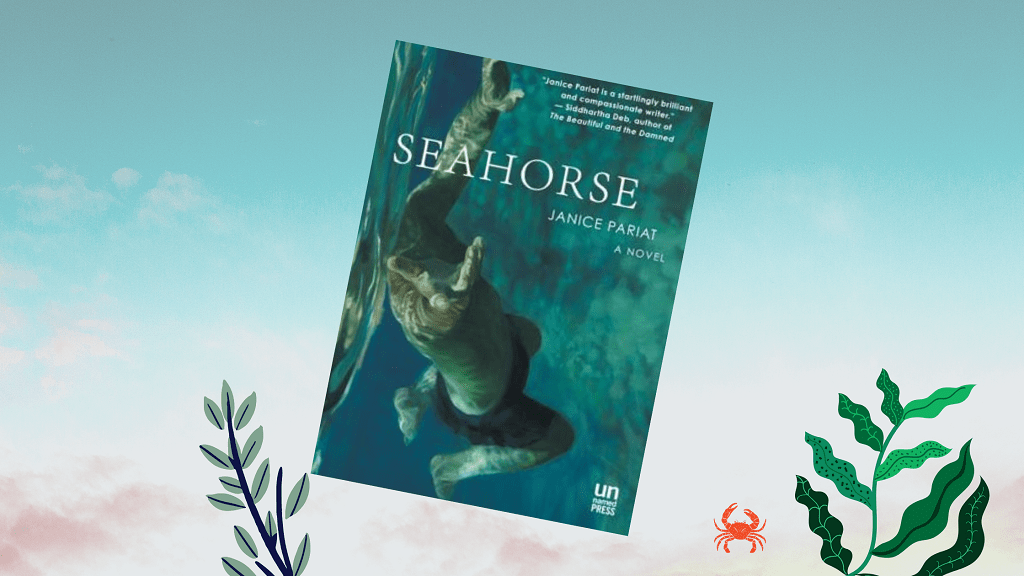Seahorse by Janice Pariat is about the relationship and love that the alliterative protagonists, Nem and Nicholas shared. Rather the novel is about Nem’s memory of Nicholas and the void that Nicholas’ leaving created.
Nem’s aching for Nicholas is not one of bitterness or surfeit weeping but one of a thoughtful and sharp reverie.
Nem was a student of English Literature in Delhi University when he met Nicholas, who taught art history. He happened to drift into one of Nicholas’ classes and was immediately taken in by his suave mannerisms. What follows in the wake of this serendipitous meeting is a warm romance and a blossoming of a relationship; one in which not only love but also ideas about art, poetry and literature are mutually exchanged. That is, until Nicholas disappears, taking with him every trace of his existence.
The novel is suffused with an immeasurable ache and an indolent melancholy. This is brought out clearly through Nem, who carries his pain around. Yet, he still holds on to his love, a love that takes him all the way to London. He does not do it intentionally but only because subconsciously his search to fill this inexplicable absence becomes slowly a part of him, a part of whom he is.
Seahorse takes you, through Nim’s memories, to the physical spaces that the pair inhabited, shared and loved particularly the corridors of Delhi University and its surrounding areas. The leisurely walks and moments intermingled with the overpowering stench of decay in the neighbouring Hudson Lines described in the first part of the novel will evoke your own college days; especially for those who studied in Delhi University.
Reminiscent of the Greek myth of the love between Poseidon and Pelops, the narrative of Seahorse is abundantly dripping with the motif of water: the marine creature seahorse lends itself to endless interpretation and the existence of a curious aquarium heralds an infinite stock of memories and connections within Nem.
Seahorse brings out both the fragility and fluidity of love; of sexualities that stop, surrender, absorb and move on as well. The tenderness of Pariat’s writing is palpable: you feel and hear the protagonist so intensely as if nothing other than that exists. The literary references are etched out so beautifully that they linger on in your thoughts for long. They do not feel erudite or cumbersome. The novel is thus not only about the love affair of Nem and Nicholas but a literary love affair in its entirety.
You will fall in love with the writing, the atmosphere, and the pace of the story; slowly and surely.
It is as if the entire novel is one surreal and beautiful water colour, where lives, destinies, love, thoughts and literary metaphors fuse so seamlessly and smoothly into one another.

